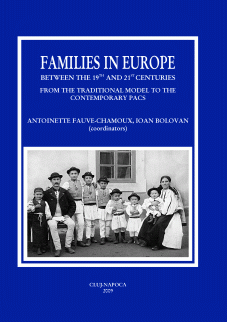Towards Nuclear Family?
Towards Nuclear Family?
Author(s): Tünde TuraiSubject(s): History
Published by: Centrul de Studiere a Populaţiei
Keywords: nuclear family; stem family; extended family; generations; ageing
Summary/Abstract: The institution of the family has gone through many changes at the turn of the 20-21th Centuries. This poses many questions to scholars dealing with social sciences. The sociologists and demographers have mostly been those who have worked more on the issue: their emphasis is especially on changes caused by structural modifications like divorce, re-marriage, step-parents/step-children, cohabitation, single-parent families, singles. It seems that the last form of the family, namely the nuclear family has become a point of reference when discussing familial systems, since modernisation tendencies have narrowed the boundaries of the family and remade its meanings even more the above mentioned structural changes have made the question more complex. In my paper I propose to reconceptualise the nuclear family from another point of view. I do fieldwork in a rural community in Romania, Sălaj county. In this society the dominant form of the family is the nuclear one – at least on the surface: in the declared norms and in the dimension of the size. But can we be sure that what we see is really a nuclear family? Does it really function as a nuclear institution? If we analyse the relationship between the elderly couple and the families of their offspring we can realise that strategies known from more complex familial systems are applied. Moreover, through a social network analysis we can reveal the cognitive category of the elderly/ageing and family in the local community.
Journal: Romanian Journal of Population Studies
- Issue Year: 3/2009
- Issue No: Supplement
- Page Range: 155-166
- Page Count: 11
- Language: English
- Content File-PDF

